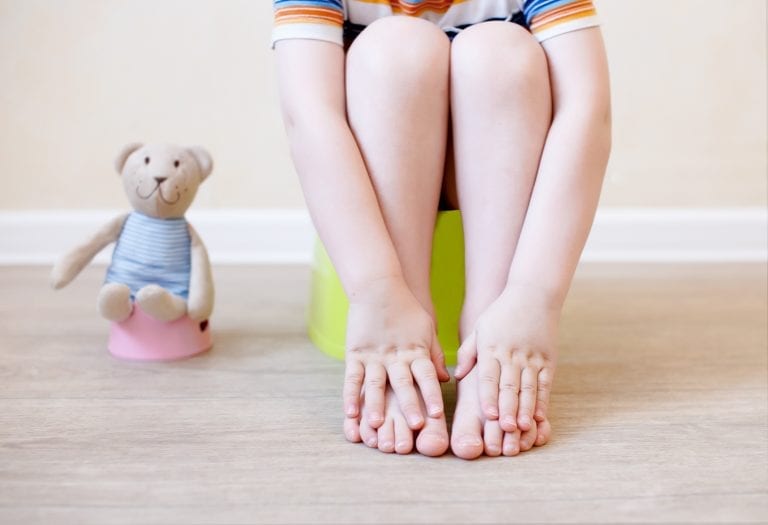Potty Training 101
Potty Training 101: Don’t get down in the dumps helping your kiddo conquer the commode!
Experts including the American Academy of Pediatrics agree a positive, gentle approach for potty training is best when you follow this age-appropriate guide:
Around 18 months
Use the correct words for poop and pee and encourage your child to do the same. Change your child often, and encourage them to come to you when they need a fresh diaper. Avoid referring to poop as “yucky”—instead, make diaper changes pleasant.
At 21 months
Introduce a potty chair and toilet by transferring poop from dirty diapers into the toilet. Ask your toddler to sit on the potty chair while you read with or play games with them. Ask them to sit on their potty chair while you use the toilet, or have them observe an older sibling using the toilet.
At 2 years
Let your child pretend to train a beloved teddy bear or baby doll to use the potty. Watch educational videos or read helpful books. Introduce wearing underwear as a privilege. Start practice runs to the potty when you notice your child needs to go.
At 2+ years
Once your child has successfully used the potty and understands the process, try what the AAP calls “the bare-bottom weekend.” Commit to several hours with just you and your child—with no interruptions—during which time your child won’t wear any diapers, training pants or underwear (nothing below the waist). This trial-and-error experiment could lead to a major breakthrough for your little one.
Tools of the Trade
Potty chair: Your child’s feet should touch the floor when seated.
Training pants: These introduce the idea of underwear while minimizing accidents.
Underwear: Let your wee one choose their underpants, and use underwear as a treat to encourage them.
Do’s and Don’ts of Potty Training
Do praise your child when they come to you with a soiled diaper or in anticipation of needing a change.
Don’t discipline or punish your child if they have an accident. Say something like, “You’ll get the hang of this! You’re doing a great job!”
Do encourage with rewards like animal crackers or stickers—make a little chart to celebrate successes near the potty.
Don’t get frustrated—children will pick up on your feelings and may become overwhelmed. There’s no need to rush; it will happen will practice and determination.
Potty Training 101 is one of a range of articles in our Baby’s Milestones section:






Comments are closed.